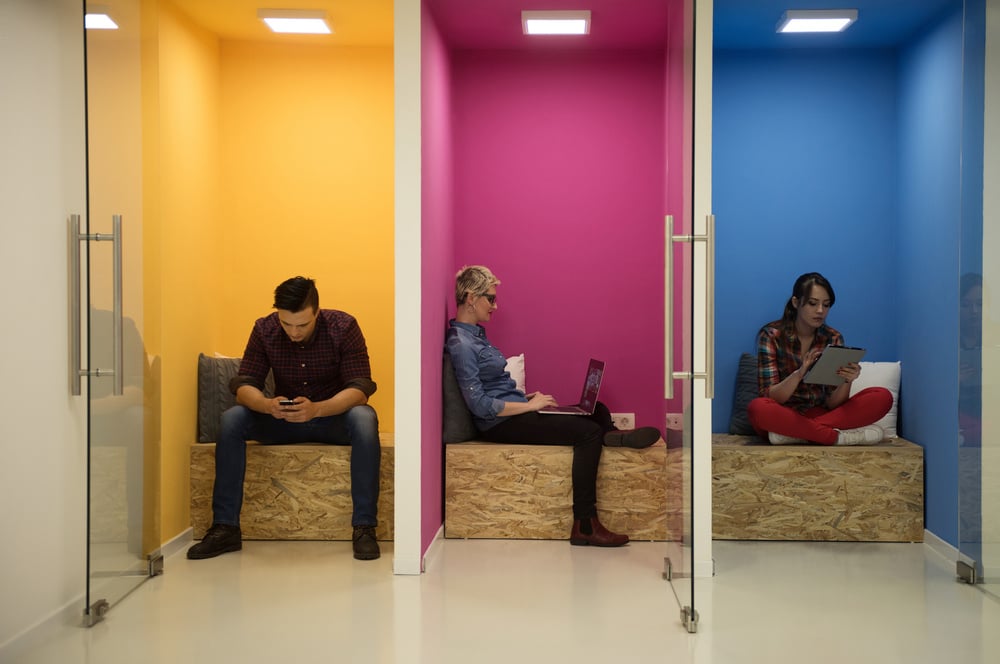An HR Expert’s Guide for Employee Satisfaction
Jackie Nixon, a New York City hospitality HR executive, has spent her several decades working in hotel HR departments. Throughout her career, she’s...

In recent years, the HR profession has undergone significant changes, largely accelerated by the COVID-19 pandemic and evolving workplace dynamics. As businesses adapt to new realities, HR professionals find themselves at the forefront of these transformations. We recently spoke to Alan Pearcy, an HR director in Chicago, about key trends that affect the HR field.
“When it comes to healthcare, everyone wants to feel special”
Companies recognize that a one-size-fits-all approach to medical benefits for employees may not meet the diverse needs of their workforce.
“When it comes to healthcare, everyone wants to feel special,” Pearcy says. “Everyone wants this personalization. If someone has a family, they might want a different plan than someone in their twenties without children.”
Pearcy says he’s noticed more personalized benefit options, particularly in areas like dental care.
Because employer group health insurance with dental coverage can be expensive, many companies don’t offer dental insurance to employees. Yet, dental coverage is the second-most requested benefit employees ask for.
Here’s something HR representatives should explore: a dental savings plan. A dental savings plan provides a cost-effective way to access dental care. It can be offered as a supplement or alternative to dental insurance, and can be a great way for small businesses to provide small business medical benefits.
With Altogether Dental, employees enjoy discounts of 15-50% on all dental procedures and don’t have to worry about waiting periods, deductibles or claims. Plus, Altogether Dental’s partnership with Aetna gives employees 260,000+ choices of in-network general and specialty care dentists.
One of the biggest shifts in HR has been the expansion of the HR professional’s role into that of an informal therapist. As mental health and work-life balance have become central concerns for employees, HR teams are increasingly fielding personal conversations.
“Before the pandemic, there was a stigma that you’d only go to HR when you’re in trouble or getting fired,” Pearcy says. “Now, I’ve had people talk to me about conflicts with their manager, microaggressions and other forms of harassment or discrimination. They’ll also ask about options for taking long- or short-term leave when the need arises or to request special accommodations or equipment. I’ve also had people complain about there being a shortage of salt in our offices’ shared kitchen areas or break rooms. We're a catchall — you really get everything.”
While this change represents a positive step toward more open and supportive workplaces, it also presents challenges for HR professionals who must balance these new responsibilities with their existing workload. Pearcy suggested that promoting Employee Assistance Programs (EAPs) can be a great way to encourage employees to gain access to a mental health professional, versus the HR office.
As employees increasingly expect quick, accessible support, HR departments are turning to new communication tools to meet these needs. Chatbots and AI-powered support systems are becoming more common, complementing traditional resource guides and phone support. The preference for digital, text-based communication is clear, Pearcy says.
“People don't want to call anymore,” Pearcy says. “They want to type in their question and have a live person or a very well-designed AI tool that gives them a personalized response.”
A growing focus for HR departments is making the claims process easier and more user-friendly for employees. This trend is driven by the recognition that complex claims processes can lead to frustration and decreased satisfaction with benefits.
“Dealing with insurance claims eats up so much time,” Pearcy says. “It’s never as simple as submitting an invoice. It almost feels like you’re going on trial when you’re dealing with claims.”
What makes Altogether Dental different is that employees pay their dentist directly; saving the HR team time on administrative tasks. No more claims! Or deductibles or waiting periods, either. Another perk for HR teams? Employees can enroll at anytime — not just during Open Enrollment. Once enrolled, employees have access and discounts to all dental services (orthodontia, dentures and cosmetics).

Jackie Nixon, a New York City hospitality HR executive, has spent her several decades working in hotel HR departments. Throughout her career, she’s...

A recent Gallup poll reported that 1 in 2 U.S. employees are open to leaving their organization. Yikes. Kelly Gust, president and principal talent...

Keeping part-time, seasonal, freelance and 1099 employees engaged and retained can be challenging. Recently, we spoke to Jackie Nixon, a New York...